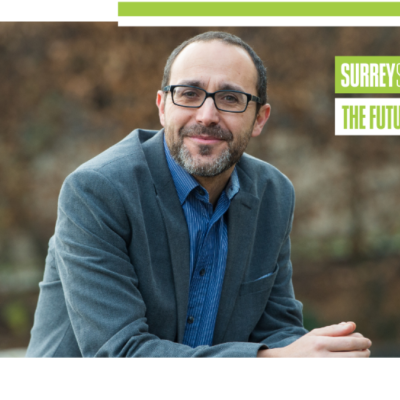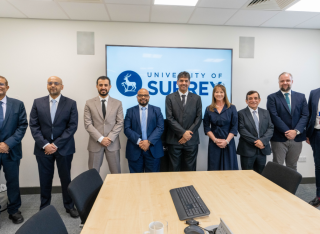Read a selection of research stories about Surrey research transforming lives and changing the world for the better.

Top storyMay 2025
Surrey Shapes the future of sustainable tourism
"Emissions from the travel and tourism industry contribute to 8.8% of total global emissions." We're working to change that.
"Emissions from the travel and tourism industry contribute to 8.8% of total global emissions." We're working to change that.
University of Surrey news
Media Contacts
The Media team links journalists with Surrey’s leading academics, groundbreaking research and other news from across the University.
- Email: mediarelations@surrey.ac.uk
- Out of hours: +44 (0)7773 479911.
If you’re seeking a specialist to provide an expert opinion or commentary on news agendas, please get in touch.
Find an expertStay connected
Latest tweets
@UniSurreyNews

A machine learning tool that is able to use amateur sketches to detect specific objects within an image could be a… https://t.co/7usRWgQBtc

Research led by @DrMelisDuyar deepens our understanding of carbon capture and utilisation processes. Dr Duyar belie… https://t.co/7JTyCESZD5

The 6G Innovation Centre and InterDigital have officially partnered to conduct research on exciting features of 6G… https://t.co/hQrmukzTBi





